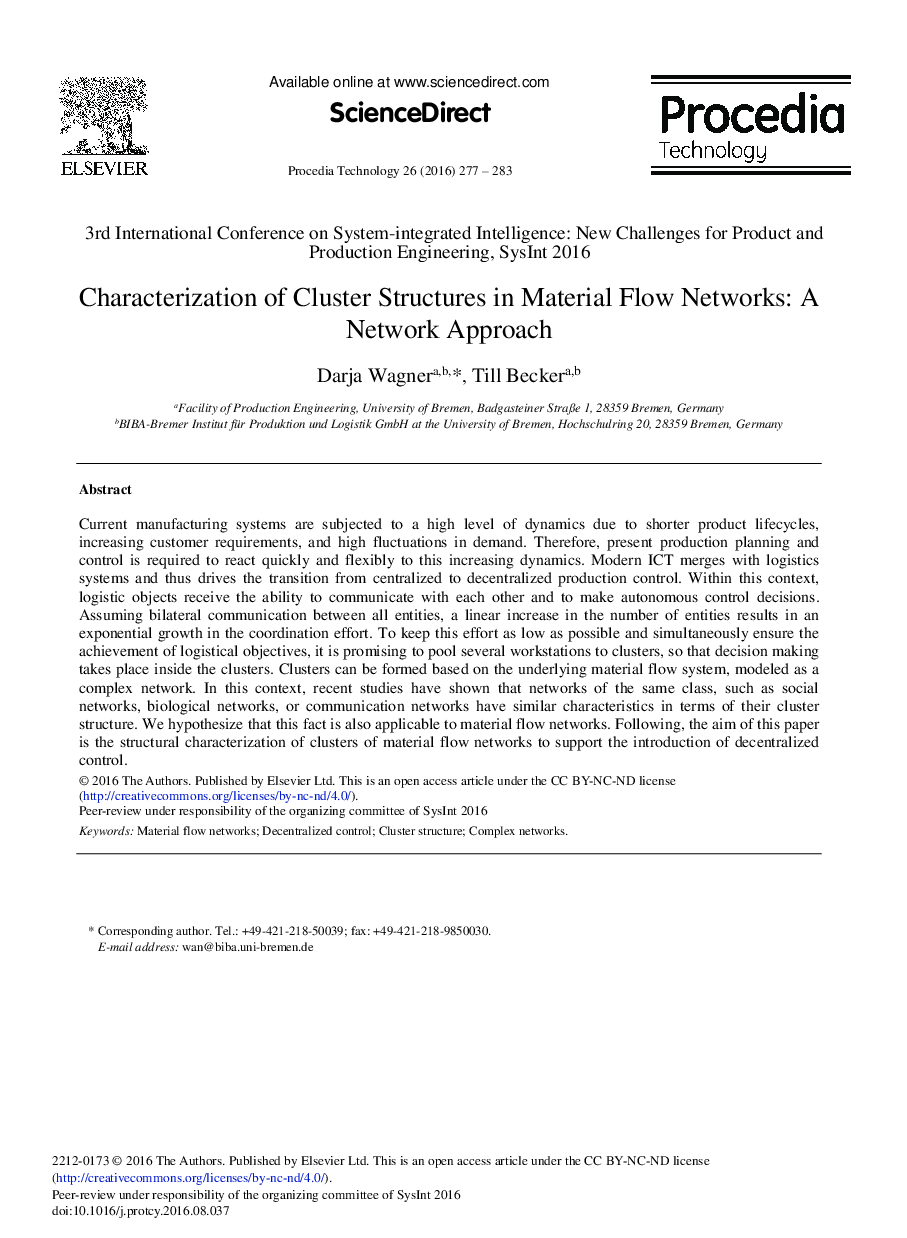| Article ID | Journal | Published Year | Pages | File Type |
|---|---|---|---|---|
| 4962461 | Procedia Technology | 2016 | 7 Pages |
Current manufacturing systems are subjected to a high level of dynamics due to shorter product lifecycles, increasing customer requirements, and high fluctuations in demand. Therefore, present production planning and control is required to react quickly and flexibly to this increasing dynamics. Modern ICT merges with logistics systems and thus drives the transition from centralized to decentralized production control. Within this context, logistic objects receive the ability to communicate with each other and to make autonomous control decisions. Assuming bilateral communication between all entities, a linear increase in the number of entities results in an exponential growth in the coordination effort. To keep this effort as low as possible and simultaneously ensure the achievement of logistical objectives, it is promising to pool several workstations to clusters, so that decision making takes place inside the clusters. Clusters can be formed based on the underlying material flow system, modeled as a complex network. In this context, recent studies have shown that networks of the same class, such as social networks, biological networks, or communication networks have similar characteristics in terms of their cluster structure. We hypothesize that this fact is also applicable to material flow networks. Following, the aim of this paper is the structural characterization of clusters of material flow networks to support the introduction of decentralized control.
